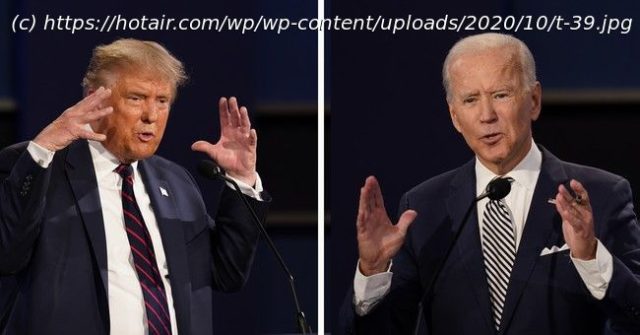Will anyone start advocating smaller, weaker government?
Whichever major political party loses on Election Day likely faces a period of soul searching. Let’s say Republicans lose. Do they keep the populist nationalism path forged during President Donald Trump’s tenure, and advocated by Missouri Senator Josh Hawley, or return to the neoconservatism advocated by Arkansas Senator Tom Cotton and Bill Kristol? Is Texas Senator Ted Cruz correct in suggesting populism and libertarianism needs blending? Do smaller, weaker government advocates return? What if Democrats fail in their pursuit of the Senate and the White House? Is their future one featuring the democratic socialism of “Independent” Vermont Senator Bernie Sanders and New York Congresswoman Alexandria Ocasio-Cortez? Does the “moderate” progressivism of former Vice President Joe Biden survive? Will Massachusetts Senator Elizabeth Warren figure out a way to push her brand of populism and heavy-handed government into the forefront? It’s been quite fascinating (and horrific) watching the transformation of both major parties over the last 25 years. Neither party believes in individual liberty (despite promises of Republicans), nor do they hold fast to smaller, weaker government. Congress’ inability to do its job, whether by desire or design, only encourages the executive and its bureaucrats to gobble more and more policy decision making. Polarization reigns supreme along with voter discontent. “The system is dysfunctional but not broke,” Reason Editor-at-Large Nick Gillespie told me weeks ago when asked if the two-party system is irreparable. “By that, I mean the Democrats and Republicans continue to act more and more alike despite rhetorical and ideological disagreements (the size, scope, and spending of government continues to increase geometrically and that will not change regardless of which party wins the White House and Congress in a month). More important, even though record or near-level record of Americans refuse to identify as Democrat or Republican, the two parties have an absolute lock on elections and offices.” Some of that is by design since the major parties are the ones who write ballot-access rules. Why Democrats and Republicans automatically get on the ballot while Libertarian, Green, Constitution, and other minor parties struggle for ballot signatures is laughably frustrating. The game is rigged and not likely to change unless certain conditions change. “It would take a lot of money, sustained commitment and public appetite to break through,” POLITICO contributing editor Bill Scher wrote to me after being asked about the current American political climate. “[T]he people currently dissatisfied with their two major party choices are not an ideologically uniform bunch, so they can’t easily band together.






